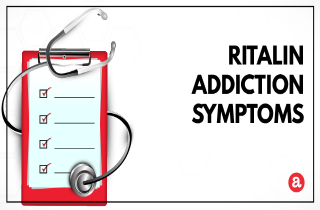Signs of Ritalin addiction
Is Ritalin addictive? Many health care professionals agree that addiction to Ritalin (methylphenidate) may produce the same chemical effects as cocaine or methamphetamine (meth). In fact, when someone takes a large dose of Ritalin quickly by trying to snort Ritalin or injecting it, the body feels and has the same reaction as though they were using meth or another stimulant.
So, if you are concerned that you or someone close to you is addicted to Ritalin, how can you know for sure? Then, what do you do? Here, we review the signs and symptoms of a Ritalin addiction as well as how they are treated. Then, we invite you to ask questions about Ritalin addiction or withdrawing from Ritalin at the end. We try to respond to all legitimate Ritalin concerns with a personal and prompt reply.
Ritalin addiction signs
It can sometimes be difficult to recognize the signs of Ritalin abuse and dependence in yourself or a loved one. However, you can tell if Ritalin is being abused based on behavioral and physical changes. Possible Ritalin addiction signs may include:
1. Problems at school or work
Frequently missing class, calling off work or a sudden disinterest in work or school activities can be a sign of Ritatlin addiction. Students may also have a sudden improvement in grades or not show difficulties with staying up late to study and studying for long periods of time.
2. Physical health issues
An unnatural increase in energy and focus may be an indication of a Ritalin addiction. Difficulty sleeping, high blood pressure, fast breathing, and increased heart rate can also be Ritalin addiction signs.
3. Changes in behavior
Ritalin can cause feelings of elation, so a Ritalin addict may appear more energetic or report a deep sense of well-being. Ritalin addicts also ten eat less and have a change in sleeping patterns, when Ritalin binges characterize periods of no sleep and crashes bring on long period of fatigue.
4. Spending money on Ritalin
Another sign of Ritalin addiction is buying black market pills. If the person addicted to Ritalin does not have a prescription or know someone with a prescription for Ritalin, they may not be able to explain large amounts of spending and in some cases, may steal items from family and friends that can be sold.
If you suspect a Ritalin addiction, it is important to find treatment as soon as possible. For more information regarding treatment centers contact a family physician, local religious leader or mental health facility.
Symptoms of Ritalin addiction
Ritalin is a stimulant drug, similar to cocaine or methamphetamine and it is a highly addictive drug. A person using Ritalin for non-medical reasons may experience any or all of the following symptoms:
- Doing things to get the Ritalin that you would not normally do, such as stealing, lie about symptoms for a prescription or ask family member to get a prescription.
- Failure in attempting to quit using the drug.
- Feeling an inability to cope without the drug.
- Feeling that you must have the Ritalin on a regular basis.
- Making certain to have a continuous supply of the drug.
- Spending excessive amounts of time, energy or money on how to get and use the Ritalin.
The Diagnostic and Statistical Manual of the American Psychiatric Association basically defines an addiction to Ritalin similar to other drug/alcohol addictions including:
- continuing to use Ritalin despite knowing about the psychological and physical problems that it can cause
- inability to quit, cut down or control Ritalin use
- reduced participation in usual activities
- Ritalin is taken in larger amounts and/or over a longer period of time than originally intended
- Ritalin use causes significant distress or impairment for three or more months
- spending excessive amounts of time trying to obtain Ritalin
- tolerance to methylphenidate changes, requiring more Ritalin to get the desired effect
- withdrawal symptoms occur when not taking Ritalin
Ritalin addiction symptoms: Can they be treated?
If you suspect you or a loved one of being addicted to Ritalin, it is important to get help as soon as possible. There are several treatment options available to help address the symptoms of Ritalin addiction including inpatient or outpatient treatment. A combination of several treatments such as psychotherapy and behavioral therapy can be helpful, as there is no current medication used to treat stimulant addiction. Both inpatient or outpatient treatment centers can help you detox Ritalin, adress withdrawal symptoms and provide you with a comprehensive list of local 12-step programs, group therapies or individual counseling options.
Signs and symptoms of Ritalin addiction questions
Do you have more questions regarding the signs and symptoms of Ritalin addiction and its treatment? Maybe you have personal experience or knowledge you would like to share regarding addiction to Ritalin. If you have questions, concerns or comments, send them to us and we will try to respond to you promptly and personally.









Related Posts